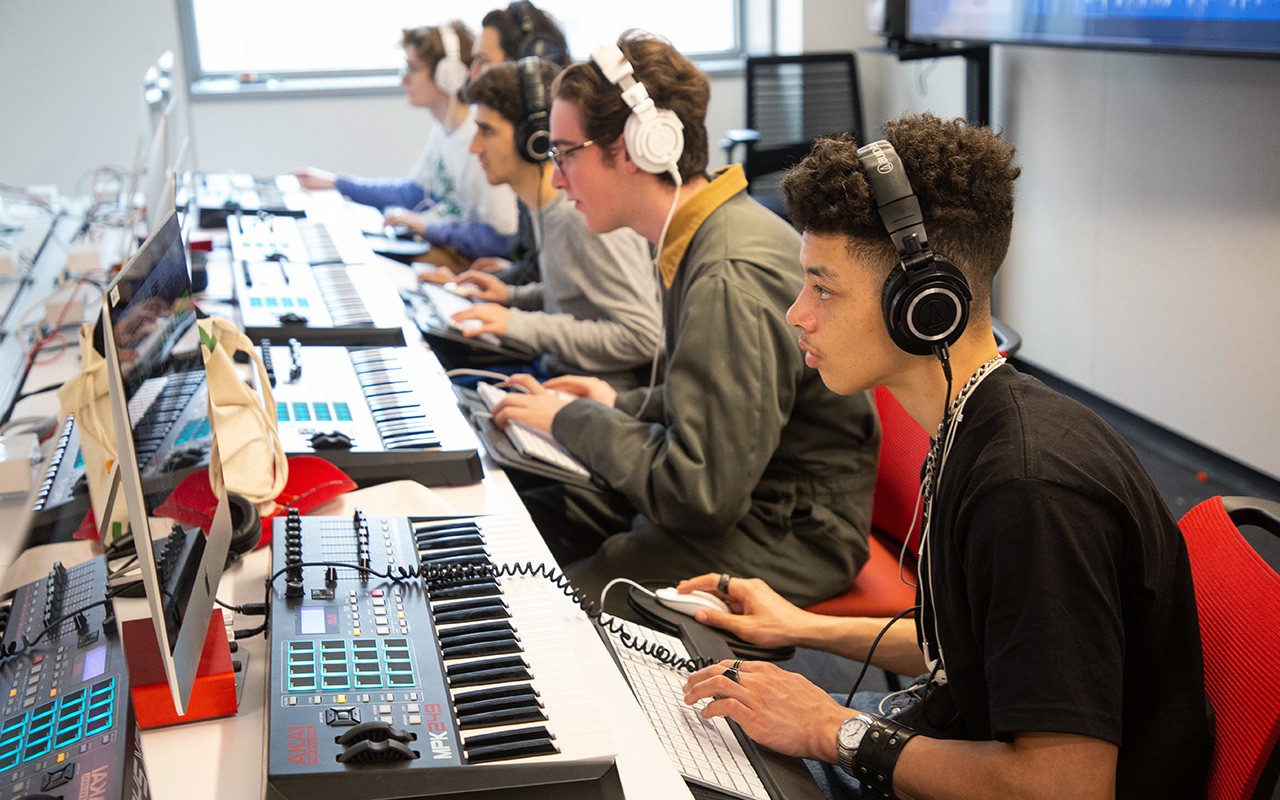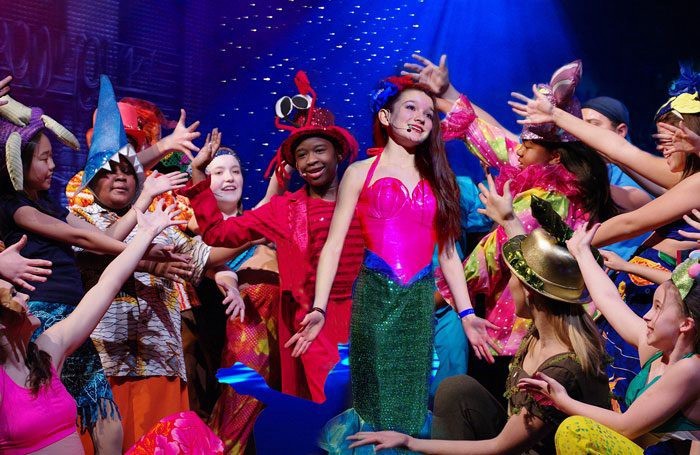Published March 22, 2022
Live in Nashville: It’s Production and A&R in the Music Industry!
Nashville is known as the capital of Tennessee and the birthplace of country music—but it’s also “the center of American music across all genres. People flock there to be creative,” says Professor Susan Dodes. With over 30 years of experience as a talent executive in the music industry, Professor Dodes supervises Nashville: Production and A&R in the Music Industry, a January Term (J Term) study away course that provides students with firsthand experience recording, producing, and editing songs in Music City. “It’s about giving students a sense of what it really means to be in the music industry,” she continues. “And it’s about understanding music as an art form. We look at how the creative process really works as well as the relationship between artist, producer, and engineer.”
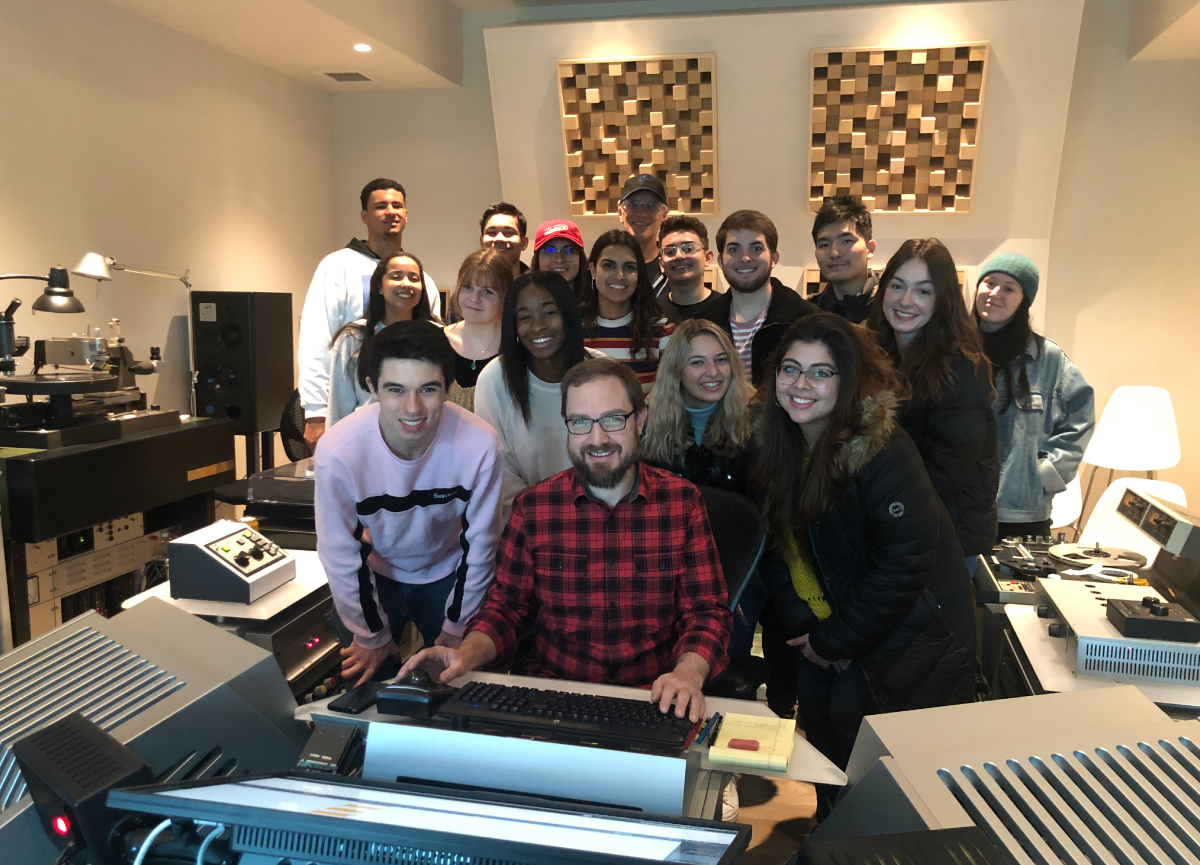
In the Studio
After a brief introduction, students arrive at East Iris Studios. There, they spend two weeks working with emerging local artists to record, produce, and edit their music. “It’s an intensive course. We’re in the studio 10 to 12 hours a day, almost every day, for 18 days,” says Professor Dodes. “We do a lot of work, but that’s rock and roll. Welcome to the music business!” In the studio, students explore a range of vital skills, from talent evaluation to sound checks and budgeting to song arrangement. Ultimately, the students walk away with a new skill set and the artists walk away with two fully realized master recordings.
The course is a partnership with Universal Music Group, and students learn from Grammy-winning producers and engineers like David Leonard (who has worked with Prince and Paul McCartney) and Steve Fishell (who has worked with Dolly Parton and Emmylou Harris). Gyllian Mullen, a Music Business major at Steinhardt, recalls visiting Blackbird Recording’s Dolby Atmos studio. “David Leonard was working on the Dolby Atmos mastering of Billie Eilish’s, ‘When We All Fall Asleep, Where Do We Go?’ And we got to hear all these songs he had been working on mastering in the 3D sound studio. I remember sitting around the console with a few of the other students, and all of our jaws dropped. I think we all fell in love with recording and being in a studio after that.”
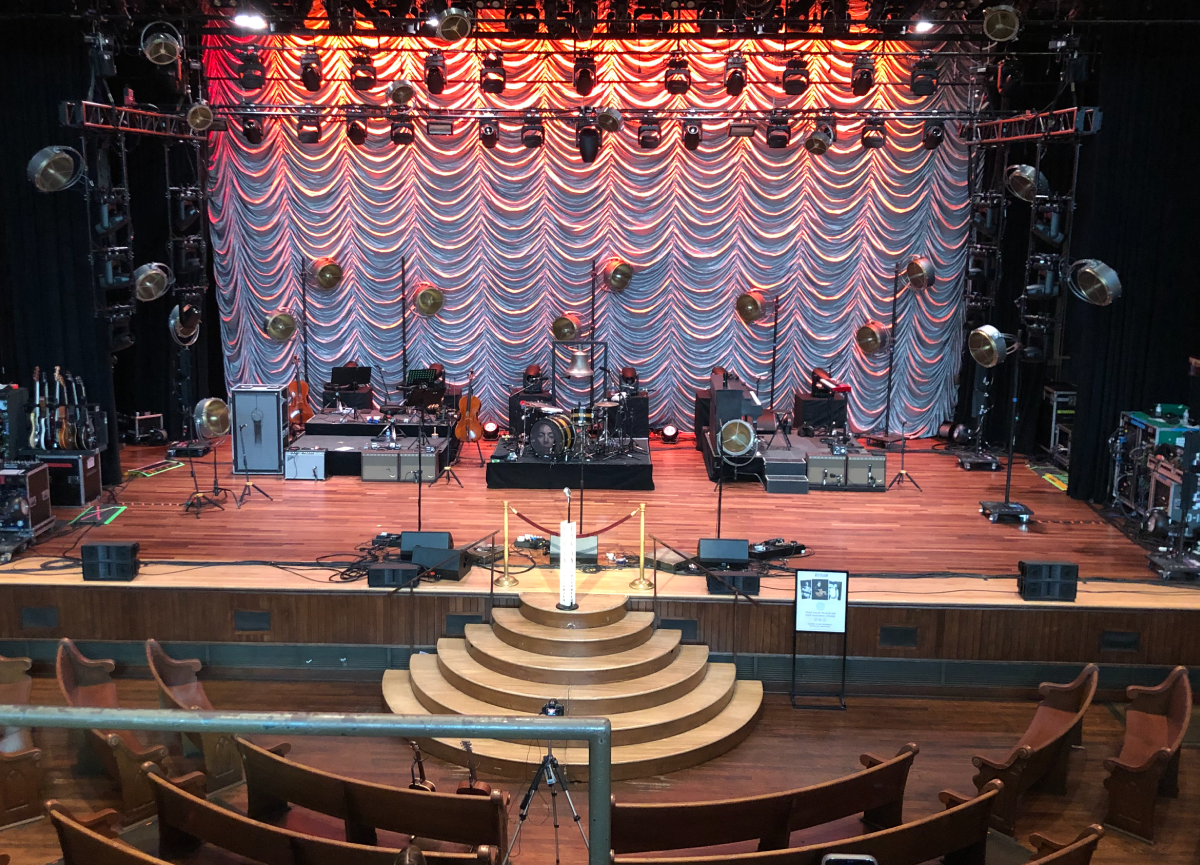
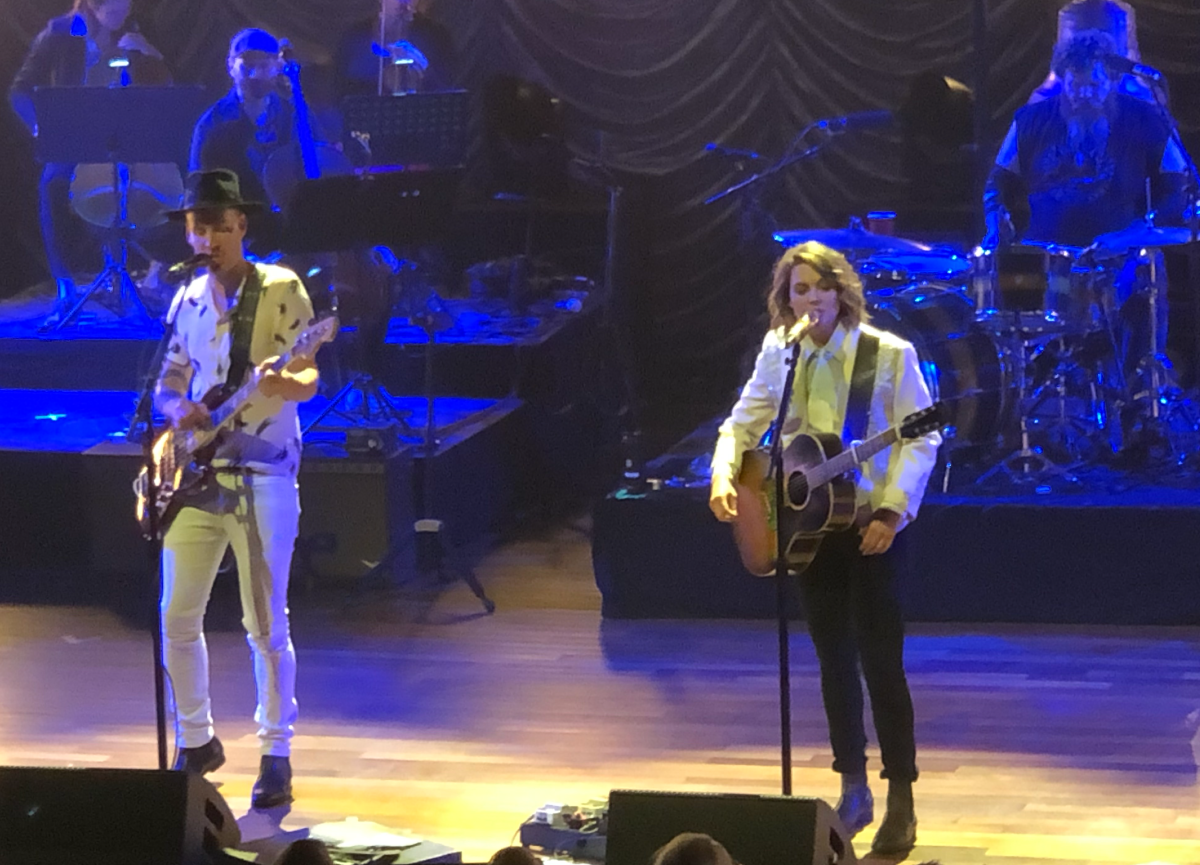
Across the City
“It’s hard for me to pinpoint any favorite part of the course because every day was a new, exciting adventure in Nashville,” muses Abby Flick, a Music Technology major at Steinhardt. For example, during the 2020 J Term, students visited the Grand Ole Opry, the Country Music Hall of Fame, and the National Museum of African American Music. They also met with a number of music industry professionals, including Mike Dungan, CEO and chairman of Universal Music Group. Additionally, students visit a variety of historical sites and museums to get a sense of Nashville’s culture and history. “Nashville is a city that can open up and expand students’ minds about how American music has evolved over time, impacted culture, and crossed racial and gender lines. So, there’s a historical component to this that most students don’t realize,” explains Professor Dodes.
Back in New York
While students interested in careers in the music business, including A&R, talent assessment, music technology, and music recording, might find the course most relevant, Nashville: Production and A&R in the Music Industry is open to all NYU students, provided they’ve completed the prerequisites. “My advice for students considering the course is to not be afraid if Music Business is not your major or strong suit. There are a plethora of new experiences waiting for you in Nashville and within this course. Approach it with an open mind!” affirms Abby. Applications for the course open in August and close in November. “The J Term Nashville course has been the highlight of my college experience so far,” concludes Gyllian. “I loved it. In fact, I plan to move there at some point.”
